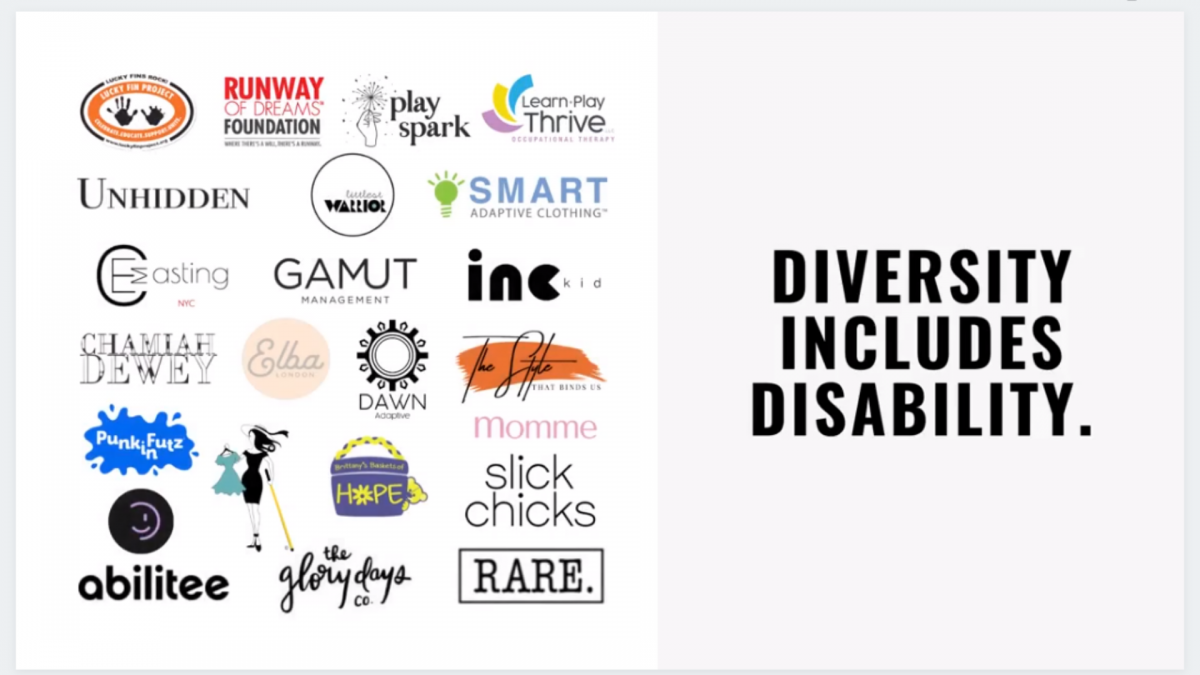20 Adaptive Brands Are Standing Up to Social Media Challenges #DiversityIncludesDisability
July 13, 2021 TBC Conversions Company NewsTBC Mobility
In recent months there has been something happening on social media. Now if you are not in the world of marketing, or even just the niche that is marketing to disabled audiences, this movement may have completely escaped your attention, so we thought we’d help bring it into sharp focus.
How it all began
One woman, Victoria Jenkins, founder of adaptive clothing label Unhidden Clothing, noticed that despite carefully targeting her adverts, painstakingly researching her hashtags and producing cleverly curated content, her adaptive brands reach on social media wasn’t what it should be.
After looking into why this could be she made a shocking discovery which she then spoke out about on social media. The response from 100’s of other adaptive clothing, mobility aid suppliers and other disability brand marketers showcased them and their small business promotions were blatantly being silenced by social media algorithms.
She posted way back in April about her findings and started a powerful movement against the obvious and unfair censorship of disability on all social media platforms. What followed was nothing short of impressive, as the community that had been brought together because of this social media censorship, united to try and make a difference together.
So how can this happen?
Definition of Social Media Algorithm: a technical means of sorting posts based on relevancy instead of publishing time, in order to prioritize which, content a user sees first according to the likelihood that they will actually engage with such content.
By definition, carefully curated targeted content should reach our desired audiences and encourage engagement with relevant brands, this has however turned out not to be the case. With examples coming out from the 100’s of adaptive business owners and brands proving their posts and ads have been banned or stopped by social media platforms for containing “sensitive material“.
The likes of Seated Sewing who specialise in adaptive garment sewing and hospital gowns had their ads cancelled because the “bodies and skin” on show are not what people want to see. Or Slick Chicks who design accessible intimates for diverse bodies having their work censored for using models who’ve had mastectomies or amputees, the people who represent their target audience!
These are just two examples of a bigger problem but luckily 20 of these dedicated brands have now come together to change the landscape and level the playing field for digital marketing accessible products.
How tbc conversions are involved
At TBC Conversions we provide wheelchair accessible vehicles to those who need them. We work in close partnership with the Motability Scheme to deliver seamless service to all our customers throughout their vehicle lease.
Marketing for TBC Conversions has recently taken a large leap into mainstream social media, but the struggle is real, even in the adaptive automotive industry. Carefully curated reels and videos of vehicles converted to allow wheelchair access are clearly getting less reach and/or engagement than their abled counterparts. Working under a large established motor dealer group, we are able to compare how our posts perform and there is a clear difference.
So far, we have not faced any difficulty with paid social advertising, but this could be down to the fact that we haven’t used any live models in our promotional videos as yet.
We would like to move forward with live reviews of our vehicles, using real wheelchair users, and want to shoot more promotional material with relatable models in the shots, although until the playing field is levelled and the restrictions and censorship stop, this could just be money and effort down the drain.
As many of the brands involved in the movement are small to medium businesses, money and time are precious commodities. To stand out in such a niche market takes dedication, creativity and at the end of the day cash, as we all know social media is pay to play these days. All these things are easy to produce when you are running a business close to your heart, as the passion is there, but when your work is rejected censored or deemed “sensitive” by an algorithm it can be soul-destroying. This plus the fact that you know your target audience aren’t being fairly represented on any social media platforms.
Thanks to the brands behind #DiversityIncludesDisability all adaptive and disabled industries could start to see positive change in the way social media platforms promote our hard work. Let’s hope that in the near future, disabled brands and indeed audiences will receive the same representation as their able counterparts.

